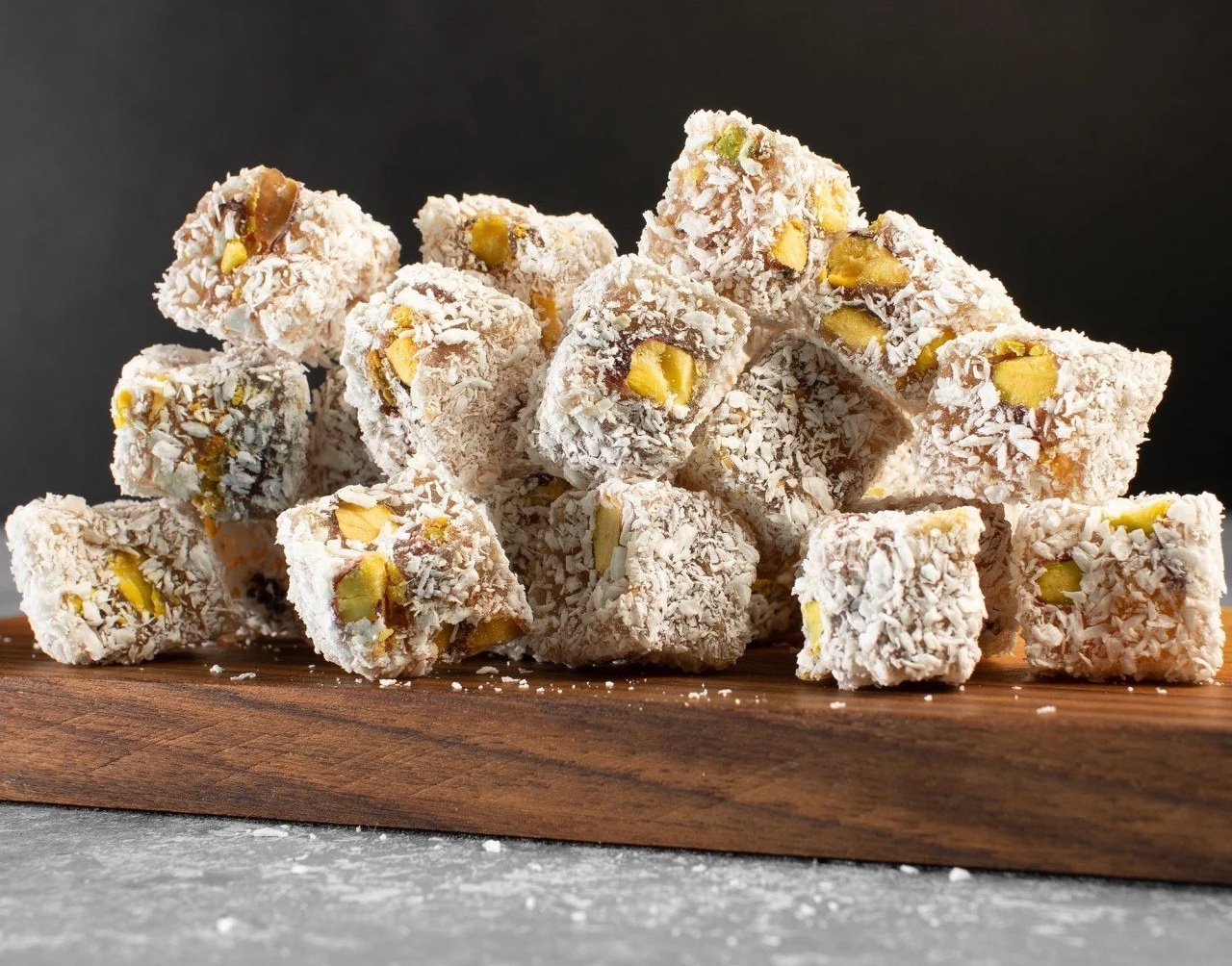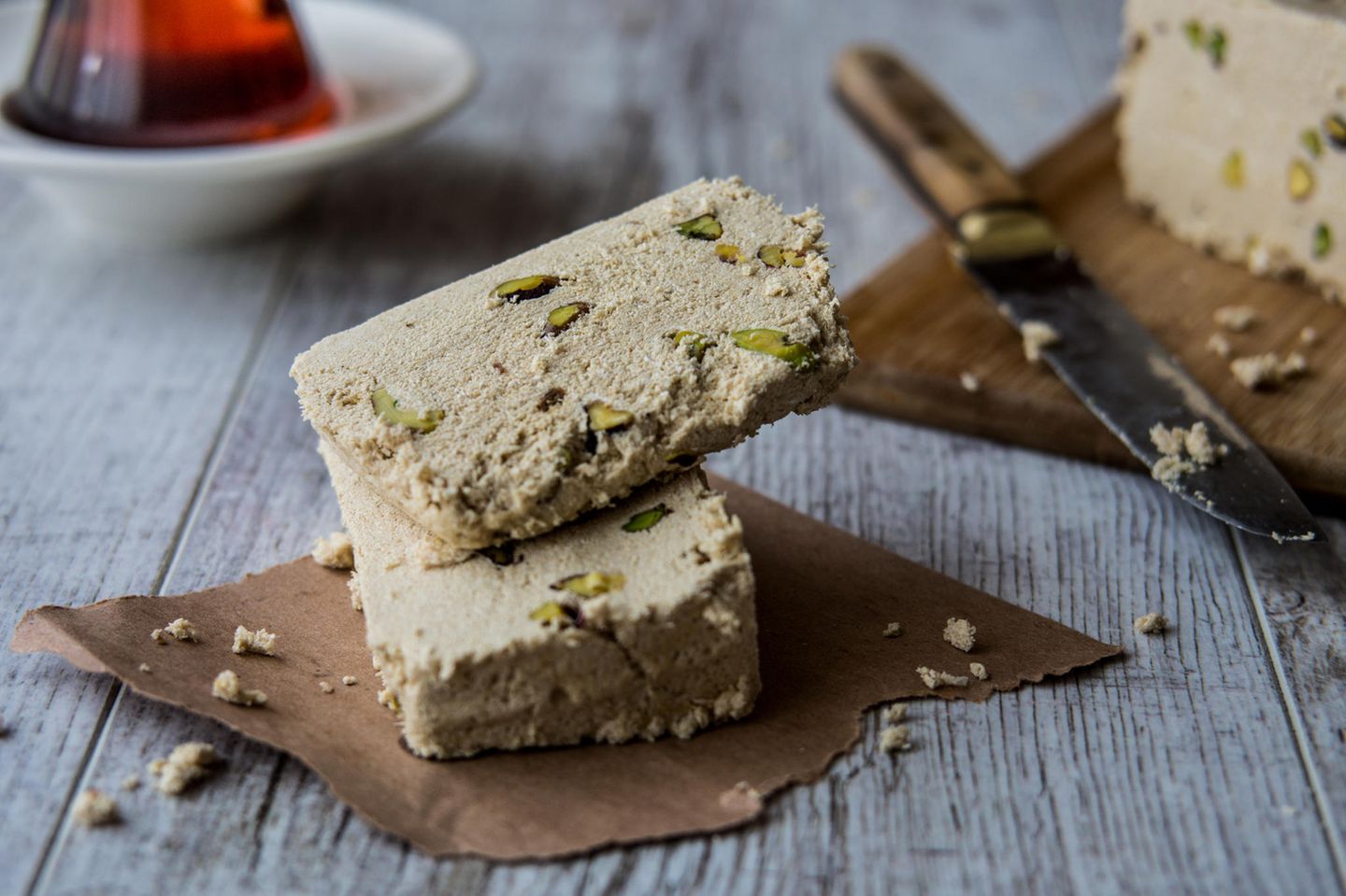Turkish delight, known as “lokum” in Turkey, is a traditional sweet treat that has been enjoyed for centuries. It is a popular confectionery made from sugar, starch, water, and various flavorings, often combined with nuts, dried fruits, or spices. The exact origins of Turkish delight are somewhat uncertain, but it is believed to have been created in Turkey during the 18th century or earlier.
Here are some key aspects of Turkish delight:
Ingredients: The main ingredients in Turkish delight are sugar and starch. The mixture is typically flavored with rosewater, orange blossom water, or lemon, which gives it a unique and aromatic taste. Other common flavorings include mint, bergamot, and various fruits like pomegranate, lemon, or strawberry.
Preparation: To make Turkish delight, sugar and starch are boiled together to create a thick syrup-like mixture. After it reaches the desired consistency, flavorings and any additional ingredients like nuts or dried fruits are added. The mixture is then poured into molds and left to cool and set. Once set, it is cut into small cubes and coated with powdered sugar or desiccated coconut to prevent sticking.
Varieties: Turkish delight comes in a wide range of flavors and variations. Traditional versions include plain (rose or lemon-flavored) or nut-filled (commonly with pistachios or hazelnuts). Some modern variations feature exotic combinations like chocolate, coffee, or exotic fruit flavors.
Presentation: Turkish delight is traditionally served in small, decorative wooden boxes or metal tins. It is often offered as a gesture of hospitality to guests or given as a gift on special occasions and holidays.
Cultural Significance: Turkish delight holds a special place in Turkish culture and cuisine. It is not only a delightful sweet treat but also a symbol of hospitality and generosity. In Turkey, it is commonly served with Turkish coffee, tea, or as part of a dessert spread during celebrations and festive gatherings.
Today, Turkish delight is not limited to Turkey and can be found in many Middle Eastern, Mediterranean, and international specialty stores. Its popularity has spread worldwide, and people from various cultures enjoy this delectable confectionery as a delightful treat.



